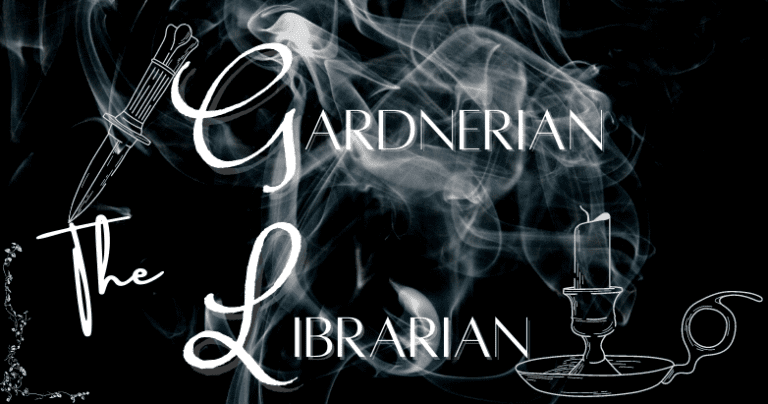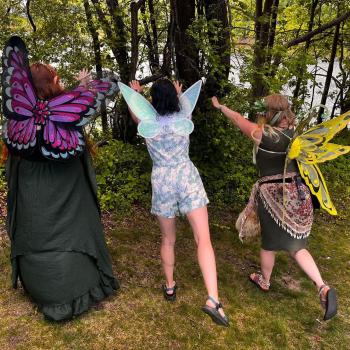This is the second part of a two part series, titled “Tending to Tradition.” You can read Part 1 here.
Today I’m continuing on with my garden metaphor to talk about how we can choose to evolve our traditions, and ourselves, with the times.
Weeds or Flowers
I used to think that dandelions were weeds that distracted away from the beauty of a manicured lawn. I now view them as gorgeous flowers with incredible medicinal properties. Dandelions are also a source of pollinator food, so please consider leaving them be! Leaving them bee – eh? EH?
How many “weeds” out there aren’t actually weeds? Who determines what’s a “weed” and what isn’t? It’s worth knowing that a “weed” is not a genus in the plant kingdom and that the label “weed” can literally be applied to any plant. Therefore, a “weed” is a construct and a mindset when it comes to gardening. And if something is a construct then it can also be deconstructed. Apply this awareness to your mindset, folks, and we may get somewhere.
“One gardener’s weeds are another’s flowers.”
People who belong to long-standing spiritual or religious traditions will encounter perceived “weeds” from time to time. For some folks, “weeds” are any plants that they don’t want existing in a cultivated land area. Cultivated land does not make it prosperous land, though. And “weeds” have as much right to exist as any other plant. In fact, that plant that you perceive as a “weed” may actually be beneficial to your garden (and to you). Not every “weed” is out to get your precious crops, y’all.
“A weed is a plant whose virtues have not yet been discovered.” – Ralph Waldo Emerson
If your mindset is to believe that every new idea or unfamiliar person coming into your tradition is a weed then it may be time to expand your gardening knowledge. There may be unknown virtues and benefits to working with perceived weeds than constantly battling against them. Your crops are not worth more than weeds on a cosmic scale. To think otherwise is incredibly egotistical.
Interesting side note: every crop has “weeds” that have evolved with it. Think about that for a moment. For every action there is a reaction.
Real life application: Understand that what occurs in other people’s gardens has no real impact on what happens in your garden. Perceived weeds in another person’s garden does not cheapen the beauty of your garden, does it? My advice in this case is to keep your eyes and your hands in your own garden. It’s the only garden where you’ll have any real impact anyway. The more energy you put into focusing on other gardens is precious energy pulled away from your own.
Taking Stock of Your Harvest

What does your garden grow? Are you getting out of it what you’ve been putting into it? Is your garden’s harvest fruitful or lacking?
Let’s pretend that you’ve been a successful gardener for a long time. Year after year, your garden has produced beautiful flowers, fruit, or vegetables but you’ve noticed lately that it’s not producing as much. In fact, you’ve found it challenging to maintain your garden while others’ gardens are flourishing. What would you do in this case? A) Ask the other gardeners for advice and implement some changes, B) Don’t ask for help and let your garden suffer, or C) Tell the other gardeners what they’re doing wrong and still let your garden suffer.
The correct answer is A, if it isn’t obvious.
Real life application: If your tradition or spiritual practice is suffering then it may be time to implement some changes. What worked in last year’s garden may not work in this year’s garden. The ways in which we approach our traditions need to evolve with the social climate. Traditions are social constructs that respond to societal pressures and changes. This is normal. A tradition isn’t a monolith – it’s a living and breathing construct of ideas, practices, and people. All living things change and must adapt to their environment or they will perish.
In order for traditions to survive they must evolve with the society in which they exist or face the inevitable outcome of failure. If you want your tradition to succeed then look to the most fruitful gardeners of your tradition for help. Consider that your methods may be outdated, harmful, or simply not working in the current climate. It is not a crime to be outdated but it is if those outdated methods are harmful to others.
Witchcraft has the power to transform us from the inside out — if we let it. Consider all the ways in which you might be inhibiting your own growth or the growth of others that you perceive as weeds. How might those “weeds” evolve from being your enemy to being something you can coexist with? Consider that your way of tending to tradition may not be best way or the only way. Your techniques and my techniques for tending to our gardens/traditions/covens will vary and guess what — that’s okay. We can both still call ourselves gardeners, neither more gardener-y than the other. A gardener is a gardener if they’re doing the Work. A Gardnerian is a Gardnerian if they’re doing the Work.
Follow me on Insta @thegardnerianlibrarian


















